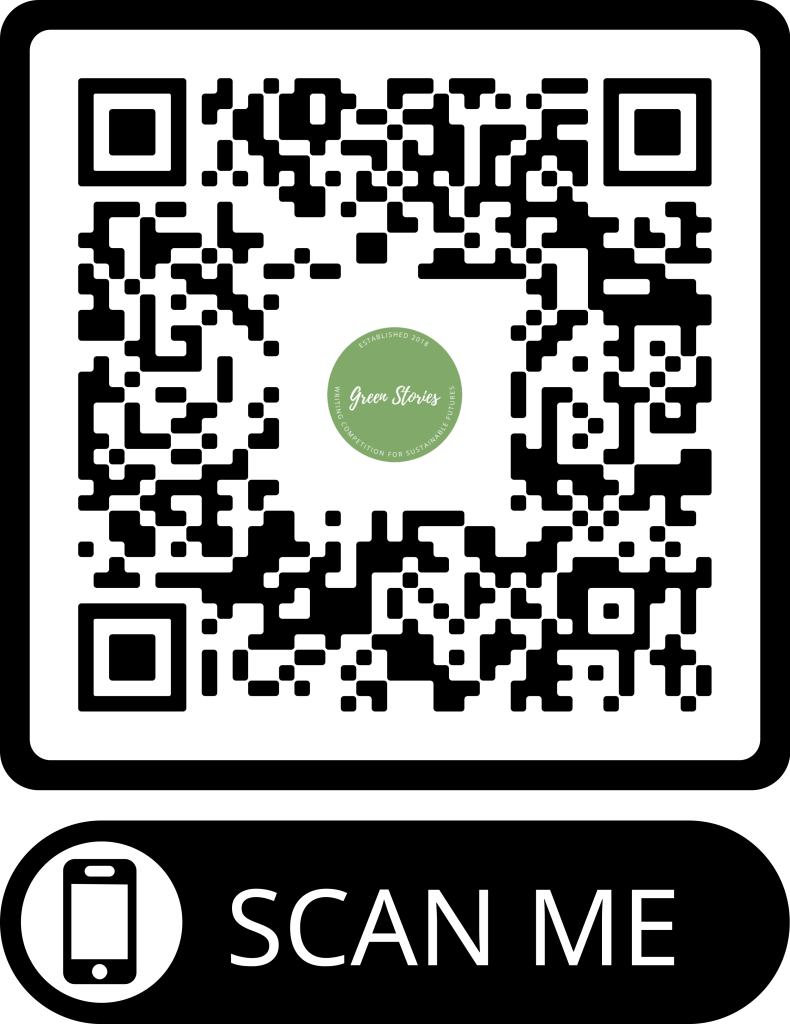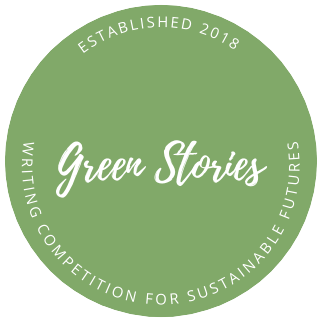Baden (2022) proposes a 2 x 2 matrix that categorizes people into those with high or low eco-anxiety and high or low agency. This is the ethos behind the Green Stories project and the anthology: to use fiction to move readers from the top left quadrant of passive despair to the bottom right quadrant of constructive action.
| Low agency | High agency | |
| High eco-anxiety | Pointless fretting, passive despair, nightmares, pessimism. Risk of alienating others | Driven action at expense of mental health, risk of burnout and aliening others |
| Low eco-anxiety | Lack of awareness, avoidance. If not part of solution then part of problem. Mindless complicity. | Calm, effective action. |
Eco-anxiety is a key topic in ‘Saving the Titanics‘ and crops up also in The Pitch. For the Saving the Titanics story, the idea is to use the example of how the Titanic could have been saved in two different ways to create a sense of hope that we can address the climate crisis. This hope is tied to a series of solutions that touch upon how we can do this. This the final story in the anthology, pulling together many of the solutions outlined in other stories. The Pitch includes an example of where the protagonist has failed in his attempt to pitch an idea that would make a significant difference. His descent into extreme eco-anxiety is halted though by the realization of what he is able to do in his own back yard and others,
A recent study surveyed 10,000 young adults and teenagers across ten countries and found that 84% were either moderately, substantially, or extremely apprehensive about climate change, with 45% reporting that their eco-anxiety was adversely affecting their ability to function in life. Hickman et al., (2021) note that this anxiety is often linked to political frustration, with the majority (59%) claiming that their governments were betraying them and/or future generations. For this reason we have tied each story to solutions that readers can help to make happen, many of which involve campaigning on the issue.
Pihkala (2019) in a report on climate anxiety argue that it is not a disease. Similarly Hickman et al., 2021 claim that eco-anxiety is a rational response to real danger, which should be treated differently to a mental health disorder.
A scoping review of interventions for the treatment of Eco-Anxiety reports that ‘A thematic analysis of the content of the selected records yielded five major themes across interventions for individual and group treatment of eco-anxiety: practitioners’ inner work and education, fostering clients’ inner resilience, encouraging clients to take action, helping clients find social connection and emotional support by joining groups, and connecting clients with nature. Recommendations for treatment plans are to focus on holistic, multi-pronged, and grief-informed approaches that include eco-anxiety focused group work.’
There is limited research in this field but some research suggests that creative writing and the arts may be therapeutic (Baudon & Jachens, 2121; Lehtonen and Pihkala, 2021). Our anecdotal findings are that many writers who wrote for this anthology found the process therapeutic. If they can’t get action in real life, they can make it happen in fiction.
The Royal College of Psychiatrists recognise and validate the experience of eco distress at the same time as working to move away from medical language (symptoms and treatment etc.) and normalise the experience as the response of healthy members of a species which is threatened. Eco distress can become overwhelming and can trigger/exacerbate mental health disorders so they recognise that individuals need support, but at the same time to identify the climate crisis, and lack of affective climate action as being the cause of the mental ill health, rather than the eco distress itself being a ‘problem or disorder’ that needs treatment. They published advice sheets for parents to help their children and for young people suffering from eco distress.
Other resources that may be helpful are:
Tool kit for climate justice educators

We encourage readers to complete the survey at the end of our anthology to see how reading solution-based stories relating to the climate crisis affects levels of climate anxiety.
